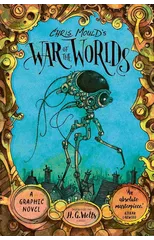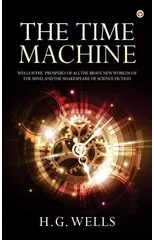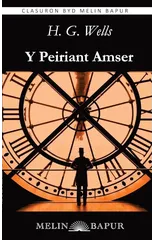Dystopian Science Fiction, Alternate History "Is it true indeed, that I have been asleep two hundred-?" asked Graham. "They have told you that, have they? Two hundred and three, as a matter of fact." Graham accepted the indisputable now with raised eyebrows and depressed mouth. He sat silent for a moment, and then asked a question, "Is there a mill or dynamo near here?" He did not wait for an answer. "Things have changed tremendously, I suppose?" he said. "What is that shouting?" he asked abruptly... The man with the flaxen beard came back towards them, turned suddenly, listened for a moment, lifted his eyebrows at the older man, and hurried off through the archway towards the balcony. The tumult of shouting grew louder, and the thickset man turned and listened also. He cursed suddenly under his breath, and turned his eyes upon Graham with an unfriendly expression...
H.G. Wells
H.G. Wells was a prolific English writer best known for his science fiction novels. His most notable works include "The War of the Worlds," "The Time Machine," and "The Invisible Man." Wells' writing style was characterized by his imaginative storytelling, social commentary, and exploration of scientific concepts. He is often credited with popularizing the science fiction genre and influencing future writers in the field. "The War of the Worlds" remains his most famous work, depicting a Martian invasion of Earth and exploring themes of imperialism and the resilience of humanity. Wells' contributions to literature have had a lasting impact on the genre of science fiction and continue to be celebrated to this day.





